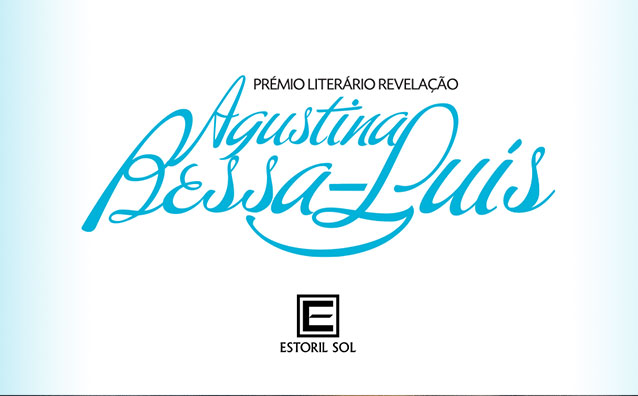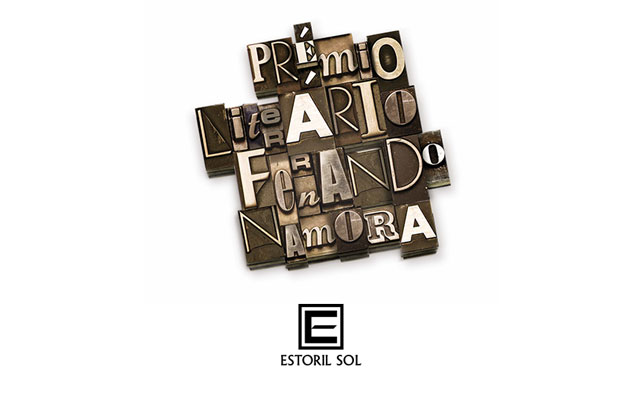ESTORIL SOL AWARDS
18th edition

With his original novel “Na Tua Mão” (In Your Hand), Hélder Teixeira Aguiar was unanimously awarded the 18th edition of the Agustina Bessa-Luís Revelation Literary Prize by the jury, chaired by Guilherme d’Oliveira Martins. The work will be published by Editorial Gradiva, currently merging with Guerra e Paz, as part of a partnership with Estoril Sol since 2008, the year the competition was launched in homage to the great writer.
The jury wrote in the minutes that the winning work “is an adventure novel of learning and overcoming challenges, featuring two brothers, aged 11 and 17, of Portuguese nationality, but living in the troubled regions of Venezuela. Pursued by drug cartels because of their journalist mother, who has since disappeared, these two young men attempt to cross the border into Colombia through the jungle. Along the way, they will learn about the world and the strength to overcome difficulties. Narrated alternately by the two brothers, this novel possesses a captivating freshness and a quality of language and narrative construction that hints at future literary endeavors of great value.”
Hélder Teixeira Aguiar was born in São João da Madeira in 1983. The son of an army officer and writer, and a teacher, he graduated in medicine from the Universidade Nova de Lisboa in 2008, and completed a master's degree at King's College London. He works at the ULS Entre Douro e Vouga as a family doctor at the USF São João and is part of the local palliative care team.
With the novel "Livro da Doença" (Book of Illness), Djaimilia Pereira de Almeida won the 28th edition of the Fernando Namora Literary Prize, for the year 2025, established by Estoril Sol, with a monetary value of 15 thousand euros.
The jury, chaired by Guilherme D'Oliveira Martins, considered that "Livro da Doença" (Book of Illness), by Djaimilia Pereira de Almeida, "captivates the reader with its human scope and the richness of its fictional construction. Placing the narrative in the first person singular, it is in the author's experience and memories that the autobiographical symptom of the novel emerges."
Djaimilia Pereira de Almeida was born in Angola, more specifically in Luanda, in 1982. She moved to Portugal as a child, at the age of three, where she grew up and has resided ever since. She therefore holds dual Angolan and Portuguese nationality. She has a degree in Portuguese Studies from the Faculty of Social Sciences and Humanities of the Nova University of Lisbon, a Master's degree in Literary Theory (2006), and a PhD in Literary Studies (Literary Theory) (2012) from the Faculty of Letters of the University of Lisbon.
As a tribute to the memory of Vasco Graça Moura, one of the most remarkable and versatile protagonists of Portuguese cultural life, Estoril Sol has set up a special Cultural Citizenship Award named after him.
The Vasco Graça Moura Award was intended to distinguish a writer, essayist, poet, journalist, translator or cultural producer who, throughout their career - or through an innovative and exceptionally important intervention - had contributed to dignifying and projecting the sector to which they belonged in the public arena.
In promoting this Award, Estoril Sol was convinced that its nature and scope would be a just recognition of Vasco Graça Moura's work and his fruitful and unusual creative versatility.

In a solemn ceremony, on October 23rd, at the Estoril Casino Auditorium, the Fernando Namora and Agustina Bessa-Luis Literary Awards, established by Estoril Sol, and for 2024, were presented by Guilherme d’Oliveira Martins, as well as the Vasco Graça Moura Award – Cultural Citizenship.
The 27th edition of the Fernando Namora Literary Prize, promoted by Estoril Sol, with a pecuniary value of 15 thousand euros, distinguished Hugo Gonçalves for the novel “Revolution”.
The Jury, chaired by Guilherme d`Oliveira Martins, highlighted that “Revolucion” “is a book that stands out in terms of literature, thanks to the way in which it connects loose ends of recent Portuguese history, always maintaining, however, the narrative design of contradictory characters, heroic or tragic, strong or weak, and whose profiles question and comment on the novel's current readers and their respective ideological positions”.
In turn, in relation to the 17th edition of the Agustina Bessa-Luís Revelation Literary Prize, with a value of 10 thousand euros, the Jury distinguished Dulce Gonçalves with the original work “O Processo”, which ensures its publication through Editorial Gradiva.
The Jury wrote in the minutes that this novel: "is centered on the historical memory of the last years of resistance to the Portuguese dictatorship and, at the same time, on the projection of the cultural traits that ensured some of its emblematic references, namely, those related to the phenomenon of Portuguese emigration to France, especially during the sixties. Within this framework, the description of particularly relevant moments (cultural and political) of the Portuguese community will evolve, such as, for example, the phenomenon of May 68 in France, with its poetic rebellions and creative insubordination, and that of Capela do Rato in Portugal in December 1972”.
In the 10th edition of the Vasco Graça Moura Prize – Cultural Citizenship, this was awarded to Helder Macedo. “An illustrious poet, novelist, essayist, critic, and professor who has an exemplary career in the field of cultural citizenship”, said the Jury. Instituted by Estoril Sol, the Prize, with an annual frequency and worth 20 thousand euros, was created in honor of the memory of Vasco Graça Moura.
The jury highlights that Helder Macedo "exiled in London, from 1960 onwards, was a collaborator at the BBC and taught at King's College where he taught Portuguese Language and Culture, establishing himself as a prestigious researcher. After the Revolution of 25 April, he carried out important roles in the cultural area in Portugal, having continued, alongside literary and essay creation, a persistent action in culture and education in favor of Portuguese culture in the world.”
The jury, chaired by Guilherme d`Oliveira Martins, representing the CNC – Centro Nacional de Cultura, also included José Manuel Mendes, from the Portuguese Writers Association, Manuel Frias Martins, from the Portuguese Literary Critics Association, Maria Carlos Gil Loureiro, from the General Directorate of Books, Archives and Libraries, Ana Paula Laborinho, Liberto Cruz and José Carlos de Vasconcelos, individually invited and, also, Dinis de Abreu, representing Estoril Sol.



